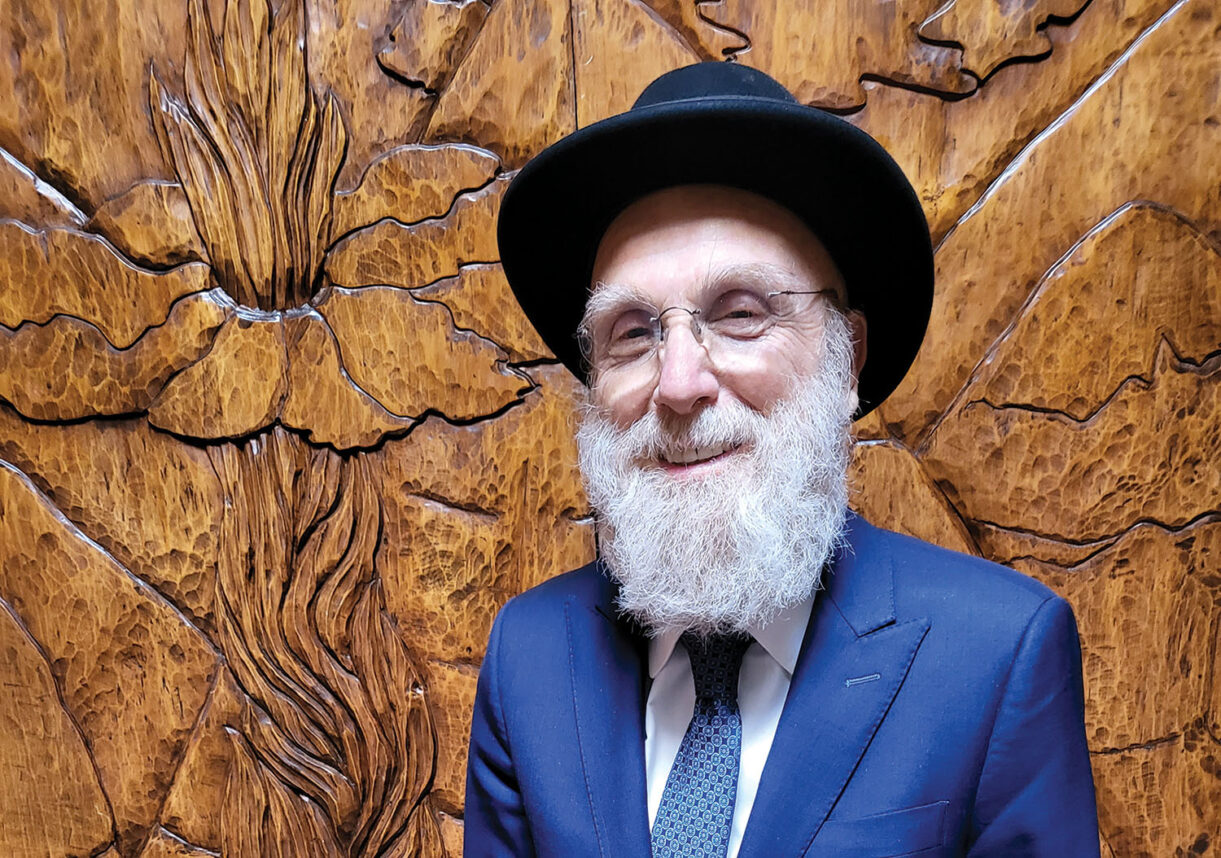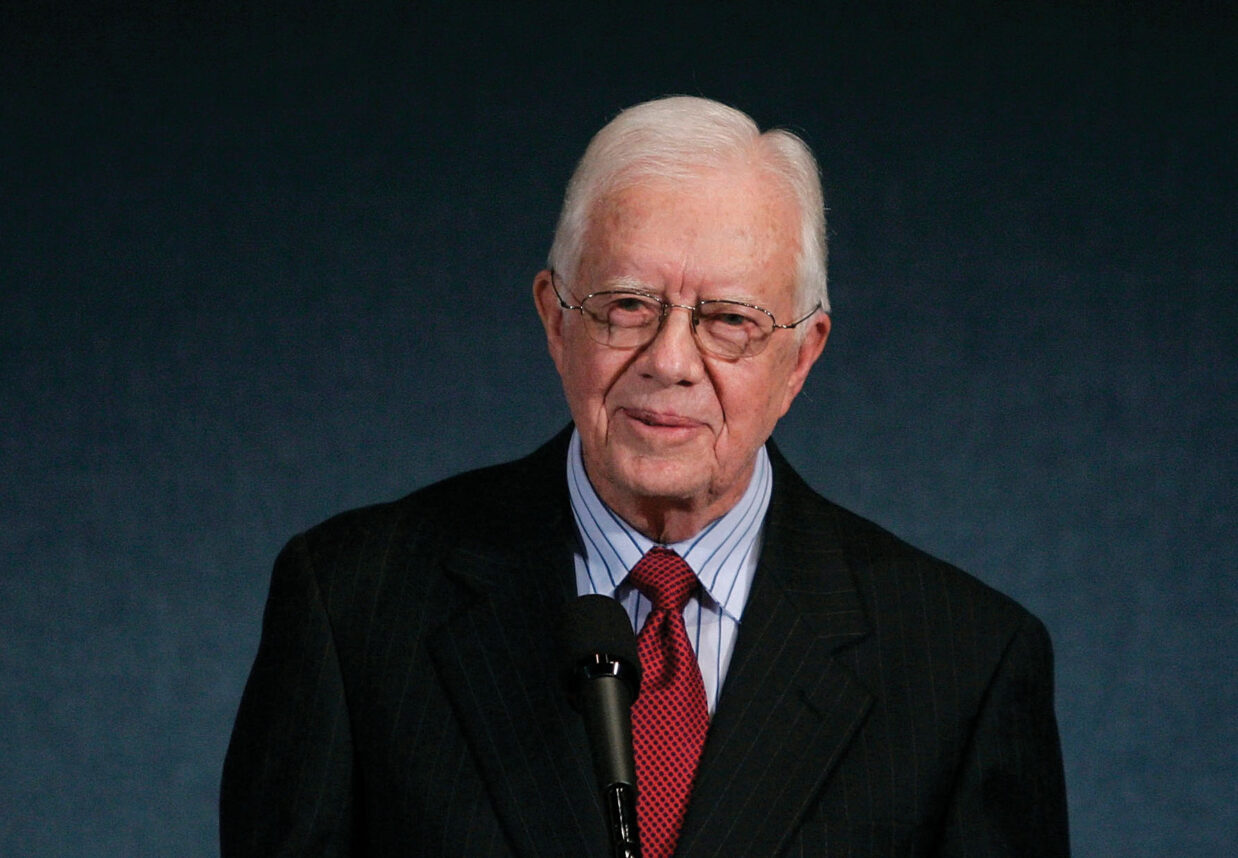Last year was a big one for Jewish cool. Articles in The Forward; Time Out New York; conservative Candian newspaper, The National Post; and staid British dailies, The Times and The Observer all trumpeted the reinvention of Jewishness as hip and cool. Amalgamate the headlines of those articles and you get something like: “It’s Hip to Be Hebrew: Edgy Jewish Chic Gets a Jewcy Makeover.”
The articles hype the worldly, self-assured, secular Jew. This 30-something urbanite articulates newfound Jewish pride through unlikely vehicles: He’Brew, The Chosen Beer; tight T-shirts bearing slogans like “Jewcy” and “Shalom Motherf–er”; insolent magazines like Heeb; and tongue-in-cheek movies, such as blaxploitation parody “The Hebrew Hammer” and the mockumentary “Schmelvis: Searching for the King’s Jewish Roots.”
Many observers, particularly those not raised in North America, are perplexed and confused by the sudden arrival of Jewish cool. Others are downright offended that anti-Semitic slurs and irreverent irony, combined with sex and profanity, are being touted as the Diaspora’s answer to religion dogged by intermarriage, shrinking synagogue membership and the Chanukah bush.
But all of this begs the most important question: Do these trends mark the stirrings of a Jewish revival, or are they so much marketing detritus, the repackaging of Jewish culture as a fleeting lifestyle fad?
To understand this phenomenon, it’s important to understand the origins of those who embrace it. The people making and wearing Jewcy products are members of a generation that grew up immersed in the glow of the TV and computer monitor. They grew up in a world of two parents in the workplace, rising divorce rates, shrinking birthrates and mass influxes of consumer goods. Most importantly, they witnessed the arrival of an all-encompassing pop culture that would create, at once, a global lingua franca of on-screen moments and a world of fragmented niches encompassing every possible pop kink.
By the time we became teenagers, our relationship to tradition was tenuous. I use we here because I am not only profiling the Jewcy Jew, but also, in many ways, an entire generation of middle-class suburban Jews (such as myself) who spent far more time in the world of pop culture than we did in shul, Hebrew school, and listening to bubby talk about the old days combined. Jews of this generation were taught about the Holocaust at Jewish private school or Jewish Sunday school via filmstrips and frail guest speakers. Pop culture taught us that each of us is a special, unique individual with the capacity for success, reinvention and total freedom. Seize the day, just do it, you’re a superstar! Judaism taught us the importance of repetition — the Amidah, “Hatikvah” — and emphasized a tradition and history marked mostly by seeming failure and recurrent destruction. After school, personal computers, VCRs and cable watched over us while our parents worked late — pulled into a booming early ’80s Reaganomics that, a decade later, would founder into debt and recession.
In university, those who were to become the proprietors and consumers of Jewish cool studied psychology, literature, feminist studies — ignoring history, religion and any politics save those of the personal. They did drugs, drank heavily, applied for unpaid internships. Their 20s passed in a blur of constant reinvention — one minute they were gay activists, the next indie filmmakers, the next nascent entrepreneurs. Many of the new Jew cool creators attended liberal arts-style colleges situated in or near big cities. Their education prepared them to be a generation of cultural producers taking advantage of the profusion of newly minted professions in marketing, communications, public relations, production, design, editing and journalism, not to mention the vast array of precarious permanently part-time endeavors that gave parents no end of sleepless nights: the performance artists, painters, stand-up comics, actors, novelists, punk rockers they insisted they were meant to be. “You want me to be like you?” they sneered at their lawyer, doctor, businessperson parents.
Of course, many of the new Jewcy Jews did end up joining their more restrained counterparts (who went to Harvard and Cornell instead of Brown and Bard) in pursuing careers as lawyers, doctors, business types. Even those who stuck with careers in the arts and media gradually discovered that business always creeps in. Regardless of chosen career path, we — an entire generation of career-minded, pop saturated, nonpracticing Jews — all discovered around the same time that, despite being adorned with careers, roomy apartments, relationships, even kids of our own, something was missing. We were getting older, and Luke Skywalker’s admonition to use the force could not help us deal with the disappointments of modern life. Lacking a vital ongoing belief system and living in a society that looked down on religious conviction, we felt adrift, alone.
Which brings us back to the present. Outwardly self-confident, inwardly insecure and guilt-ridden, a new generation of Jews is realizing that meaning can’t be solely constructed through lists of favorite albums. Pop-savvy hipsters also need community, seek guidance, structure, continuity and a sense of deeper purpose — all those things that modern society seems unable to provide. And yet, we’ve grown up steeped in the profound uncoolness of Jewishness. Even once “hip” Jewish culture seems somehow emasculated: the nattering insecurity of Woody Allen; the sweaty-palmed mamma’s boy, Portnoy; the potty-mouthed ranting Lenny Bruce. Compared to the culture of pop and its myth of individuality, inscrutability, rebellion and cool, both Jewish culture and practice seem as boring and irrelevant as ever.
And so we began to search for other ways to connect to those things that religion provides. We want to have a shared sense of who we are and where we come from, but in a way that speaks of the world we know and understand intimately: the irreverent, self-referential, irony-steeped world of pop culture. Yearning for meaningful connection becomes a T-shirt and a B-movie parody. Since we’ve always identified with each other through our pop fetishes — he’s a goth, she’s a punk — creating a subculture of pop that hipster Jews can relate to and speak to each other through comes naturally.
This is a generation without community as many understand it. We are connected through networks, friendships and entertainment interests, not neighbors, family, nationality or religion. We pick and choose our relationships as part of the ongoing process of personal invention. In many ways, pop culture is our community, it’s what links us to our friends and — for the large numbers of Jews of this generation who work as cultural communicators — it is our source of income, what we do, as they used to say, for a living. Call it liberating or sad, but there’s no denying that the new Jewish-influenced pop culture is a way to communicate a sense of some communal yearning for deeper meaning and more intimate connection. This we do the only way we know how: by forming pop culture communities.
But, of course, pop culture community is not real community. It is transitory, does not impose any kind of substantive obligations on its members, and lacks a shared value system. As a result, trying to reconnect to Jewish community by forming pop culture communities seems paradoxical. Can we use the language of pop culture to transcend our world of ephemeral style symbols and form deeper and more meaningful Jewish communities?
One such attempt at a new kind of Jewish community is run by Mireille Silcoff in Toronto, a lively cosmopolitan city with a large Jewish population. Founded in 2003, Silcoff presides over a monthly salon that meets at her apartment. Much liquid courage is provided for the hesitant, and discussions of Israel and anti-Semitism are explicitly banned. Attendance has been steadily growing to the point where Silcoff is moving the gathering out of her apartment and into a just-opened trendy bar in a rapidly gentrifying downtown area. The attendees are primarily young secular Jews in early adulthood, many of whom are working in the fields of arts and communication. The goal of the salon, according to Silcoff, is to reconnect a living, breathing Jewish culture to the mainstream of these young lives.
“Judaism has become a kind of invalid culture,” Silcoff explained, “we don’t consider it real, we don’t feel like it has anything to do with our lives now.”
Silcoff is, in many ways, a prototypical new-cool Jew. She wrote two books about drugs and rave culture in her 20s. She changed her last name, concerned that an association with nerdy Jewishness would hamper her credibility to chronicle youth underground. Now she’s changed her name back and no longer feels like the “Jewish thing” is an impediment to her career.
“We’ve all grown up with a rich cultural background as Jews,” she said. “We’re lucky to have this Jewish thing — so many people are walking around like empty vessels, looking for something to belong to.”
So why can’t young Jews belong to synagogue or other traditional forms of Jewish social groups in the community? Why do they have to gather at a hipster party, as laid back and noncommittal as a cocktail?
“There are about four people who attend the salon who also go to synagogue,” she said. “We just aren’t coming from that turgid Jewish institution…. Not the JCC, not B’nai Brith, not attached to a synagogue. We’re coming from a new place…. More emphasis on the concrete over the spiritual, on culture over religion. Thirty Jews getting together in a room, that’s spiritual for me.”
The laissez-faire “hey, let’s just get together and talk” approach to Judaism — combined with the arrival of explicitly Jewish pop creations — began as a largely grass-roots, unconscious articulation of a sense of something lost. But it has since been deliberately encouraged.
Silcoff’s transition from disconnected and embarrassed to proactive and prideful was fostered by an organization called Reboot. Founded in 2002, Reboot is a nonprofit that describes itself as “aiming to bring about a cultural renaissance among young Jews, stimulating them to express their unfolding sense of Jewish identity, value and heritage.” Reboot recruited Silcoff after she began to make a name for herself as an insightful chronicler of youth culture. She was invited to their annual weekend gathering in Park City, Utah. Silcoff reluctantly attended, and describes what ensued as “life changing.” By immersing herself in a gathering of creative individuals who were all likewise “feeling Jewish, but also feeling disconnected,” Silcoff found that she was able to leave behind her “guilt about not belonging.”
The idea of Reboot is to gather these young, influential, culturally savvy Jews and then disperse them back into their communities. “It’s sort of a peer-to-peer marketing project,” explains Silcoff, who was encouraged to start her salon by the Reboot organization. “If you want to put it in a very cold, weird way.”
Reboot isn’t the only nonprofit organization deliberately trying to foster a new identity for Judaism. Indeed, as an organization funded by the Andrea and Charles Bronfman Philanthropies and Steven Spielberg’s Righteous Persons Foundation, Reboot is just the best organized and most established of a burgeoning number of such groups. Another notable entity is the Joshua Venture, a San Francisco-based group that funds off-kilter young Jewish entrepreneurs. It has backed the magazine Heeb, as well as StorahTelling, a traveling theater group described as “a fusion of storytelling, Torah, and contemporary performance art.”
Unable to reach young Jewish adults through usual outreach, traditional Jewish groups concerned about the steady erosion of Judaism in America are picking up on what is already happening and giving it a helping hand. Many of the people who cringe when they see Heeb on the newsstand or a T-shirt like “Shalom Motherf–er” might have even contributed to these projects through their annual donation to an established Jewish organization. There has been little mainstream debate about this new way of wooing young Jews back to their religion. Few, if any, articles on this subject have wondered: If Judaism becomes a T-shirt and an attitude, what will be left of the religion for these young people to return to?
The articles in the newspapers and magazines are all ridiculously upbeat about “Jewish chic.” Naomi Wolf crows in London’s Sunday Times: “For young gentiles it’s cool to be mistaken for a Jew and to greet each other with the words shalom and mazel tov.” Wolf’s article and others emphasize that this new trend is about self-respect and community empowerment. But a closer examination of the culture from which it emerges suggests that this isn’t always the case. Jewsweek.com’s gossip on Jews in Hollywood and pictures of Gov. Arnie dancing the hora may attract younger viewers, but spending time there feels more like watching “Entertainment Tonight” than it does like “reconnecting.”
Pop culture rarely fosters real community or individuality. Pop promises such attributes, but delivers merely passive engagement — identity without individuality, community without commitment. It remains to be seen whether the new pop Jew trend can circumvent that trap. After all, we live in an age where pseudo-difference is celebrated, difference that comes from body piercings or appearances on “American Idol.” But real difference — like being committed to an ideology or religion — is ignored if not mocked. Style-infused depictions of Judaism cannot elude pop’s legacy of breaking down community and instilling a new kind of “everyone’s special for being who they are” attitude. As Douglas Rushkoff said about the new alterna-Jew experience, “This culture seems to promoting not values but the surface conventions of MTV and hip hop.”
But Rushkoff’s comments don’t apply across the board.
A monthly salon is different from a line of clothing. Clothing can only ever be surface; regular gatherings can lead to substantive changes of attitude, new friendships, an accepting of responsibilities — in other words, community. There is a big difference between, say, John Zorn’s Masada — new wave jazz reinterpreting the klezmer musical tradition — and any number of Jewish pop and rap bands that merely insert bagels and lox into their otherwise formulaic songs. Which is to say that a generation of culture-savvy ironic stylemeisters linked by Jewishness can contribute to the life and legacy of Judaism while fostering new communities that speak to the alienated.
But it is difficult to accept, as Wolf apparently does, that Adam Sandler’s “Hanukkah Song” and “young gentiles” high-fiving each other in Yiddish will lead to anything more than further dissolution and confusion. If Jewishness becomes just another way to be cool, then Judaism will ultimately be replaced in North America by yet another clever marketing campaign. If, on the other hand, cool can be reclaimed for Judaism, then an entire demographic of wandering pop nomads may finally return to the tribe.





















 More news and opinions than at a Shabbat dinner, right in your inbox.
More news and opinions than at a Shabbat dinner, right in your inbox.